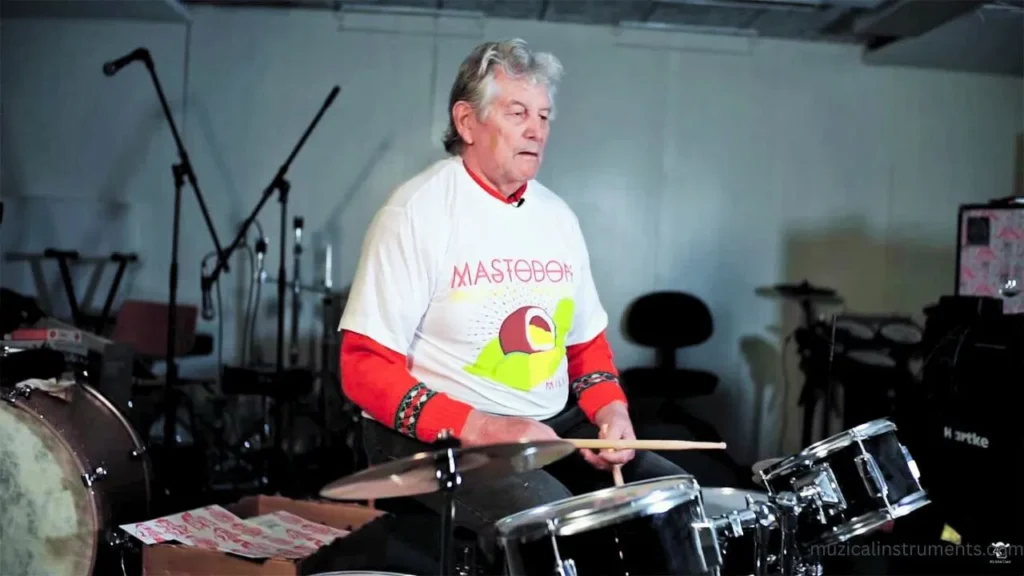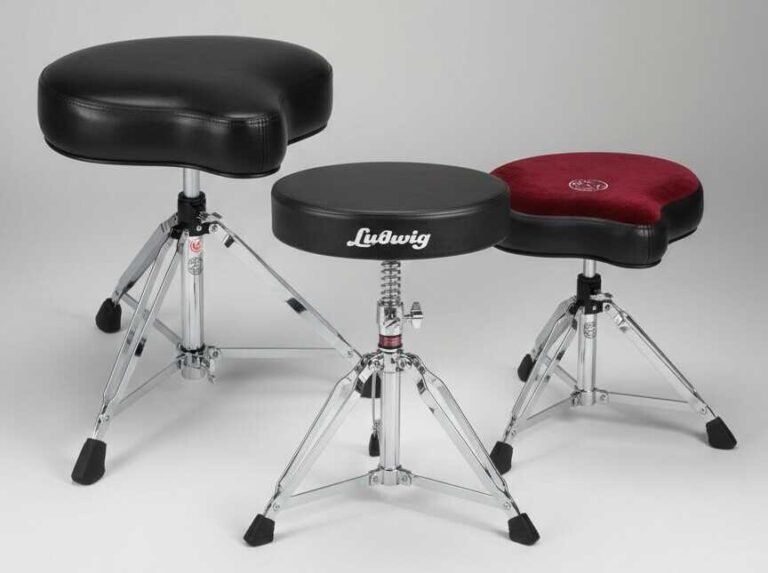Is 70 Too Old to Learn Drums? Here’s Why You’re Not Too Late
Is 70 too old to learn drums? Not at all. Many people start drumming in their 60s, 70s, and even 80s, and it’s one of the best things they can do for their mind and body.
Drumming keeps your brain sharp, boosts memory, and lifts your mood. It gets your hands, feet, and heart moving together in rhythm.
In this guide, you’ll learn why age doesn’t stop you from learning drums, how drumming helps your health, and simple ways to start right now, even from home.
The Myth of “Too Old”: What Science Says
You may think learning is just for kids. But your brain doesn’t stop growing. Not at 40. Not at 60. Not at 70. Your brain still makes new paths. This is called neuroplasticity.
It means you can learn new things, even now. Like drumming.
Your hands may feel stiff. You might forget things sometimes. That’s okay. When you drum, your brain and body work together. This helps your memory. It helps your balance. It even makes you feel calm.
Doctors say movement and music are good for older adults. And drumming gives you both. You move your arms. You tap your feet. You follow a rhythm. You think. You smile.
So no, age does not block learning. Fear does. But once you start, that fear gets quiet. The beat gets louder.
How Drumming Helps You at This Age
Drumming is not just fun. It’s good for your whole body. When you play, you move your arms, your feet, and your fingers. This keeps your body strong. It also helps your hands stay steady.
Drumming is good for your brain too. It helps you focus. It helps you remember things. You hear a beat, and your body follows. This trains your brain and keeps it sharp.
It’s also good for your mood. Tapping a drum can help take away stress. It can make you feel calm, happy, and even proud. You are doing something new. You are growing.
Doctors and teachers say drumming helps people at any age. But for older adults, it can help even more. It gives you energy. It gives you joy. And it keeps your mind and body active.
You don’t need to be fast. You don’t need to be perfect. You just need to keep the beat.
How Drumming Helps Your Body and Mind
| What It Helps | How It Helps You |
|---|---|
| Memory | Helps you remember and stay sharp |
| Focus | Keeps your mind on the beat |
| Balance | Moves your arms and feet together |
| Stress Relief | Makes you feel calm and happy |
| Heart Health | Gets your body moving and blood flowing |
You’re Not Alone: Others Started at 70+ Too

You might think you’re the only one starting this late. You’re not. Many people pick up drums in their 60s, 70s, and even 80s.
Some play in their garage. Some join drum circles in parks or community centers. Others take lessons online, right from home. No loud kit needed. Just sticks and a pad.
One man started at 72. He tapped on a table for fun. Now, he plays in a band with friends. A woman picked up her first drum at 75. She plays with her grandkids every week.
They didn’t worry about speed. They didn’t care about being perfect. They just started. Now, drumming is part of their life.
You can do it too. You have the time. You have the heart. And you’re not alone.
You Can Start Right Now (Here’s How)
You don’t need fancy drums. You don’t need big lessons. You just need a place to tap and a little time.
Start with soft sticks and a practice pad. Or use a table. Even a pillow works. Tap slow. Count to four. Tap again.
Do it five minutes a day. That’s enough to wake up your rhythm.
Watch a short video for beginners. Try one beat at a time. Don’t rush. Don’t worry. If it feels fun, you’re doing it right.
Can’t move fast? That’s okay. Play slow and smooth. Got joint pain? Sit in a comfy chair. Rest when you need to. Drumming is about joy, not speed.
Every beat you tap helps your brain, your body, and your heart. The best time to start? Right now.
If you’re just getting started, easy-to-play electronic air drums can be a fun and low-impact way to learn at any age.
Easy Tools to Start Drumming Today
| Tool | What to Use | Why It Works |
|---|---|---|
| Practice Pad | A soft rubber pad or drum mat | Quiet and easy on your hands |
| Drumsticks | Light wooden sticks | Easy to hold and use |
| Table or Pillow | Anything firm or soft at home | No need to buy anything yet |
| Online Video | Beginner drumming lessons | Helps you follow along step-by-step |
| Timer | Phone or kitchen timer | Keep practice short and simple |
Find Your Rhythm with Others

Drumming feels even better when you share it.
You can join a drum group in your town. Some meet at parks, schools, or senior centers. You don’t need to be good. You just need to show up.
Playing with others helps you stay on beat. It helps you learn faster. And it makes you feel part of something. You laugh, you tap, you smile together.
You can also play with your family. Kids love to drum. You can teach each other. Or play along to music on the radio.
Don’t want to go out? Join a group online. Many people meet on video calls just to drum and chat.
Drumming isn’t just sound. It’s a connection. And connection feels good at any age.
Worried about physical strain? Learn if playing the drums is bad for your back and how to stay pain-free at any age.
You’re Not Late. You’re Right on Time.
You asked, “Is 70 too old to learn drums?” Now you know the truth. No, it’s not too old. Not even close.
Your brain can still grow. Your hands can still move. Your heart still wants joy. And drumming brings all of that.
You don’t have to play fast. You don’t have to play loud. You just have to play. One beat. Then another.
You’ve lived many years. Now it’s time to feel the rhythm of this one.
So grab a stick. Tap a table. Feel the beat. You’re not behind. You’re right on time.
Frequently Asked Questions
1. Am I too old to learn the drums?
Not at all! Many people start drumming in their 50s, 60s, or even 70s. Your brain remains capable of learning new skills, and drumming can be a fun and rewarding activity at any age. It’s about enjoying the process and the music, not about age.
2. Is it harder to learn drums as an adult?
Learning any new skill comes with challenges, but adults often have better focus and discipline. With consistent practice, you’ll find yourself improving steadily.
3. What are the benefits of drumming for seniors?
Drumming offers numerous benefits: it improves memory, reduces stress, enhances coordination, and provides a sense of accomplishment. It’s also a great way to stay physically active and socially engaged.
4. Do I need a full drum kit to start?
Not necessarily. You can begin with simple tools like practice pads or even household items. The key is to start practicing rhythms and build from there.
5. How much time should I dedicate to practice?
Even 15-30 minutes a day can lead to noticeable progress. Consistency is more important than long sessions. Regular practice helps develop muscle memory and rhythm.
6. Can I learn drums online?
Absolutely! There are numerous online resources and communities where you can find lessons, tutorials, and support from fellow drummers.
7. What if I have physical limitations?
Drumming can be adapted to suit various physical abilities. It’s important to listen to your body and consult with professionals if needed. Many find that drumming actually helps improve mobility and coordination over time.




